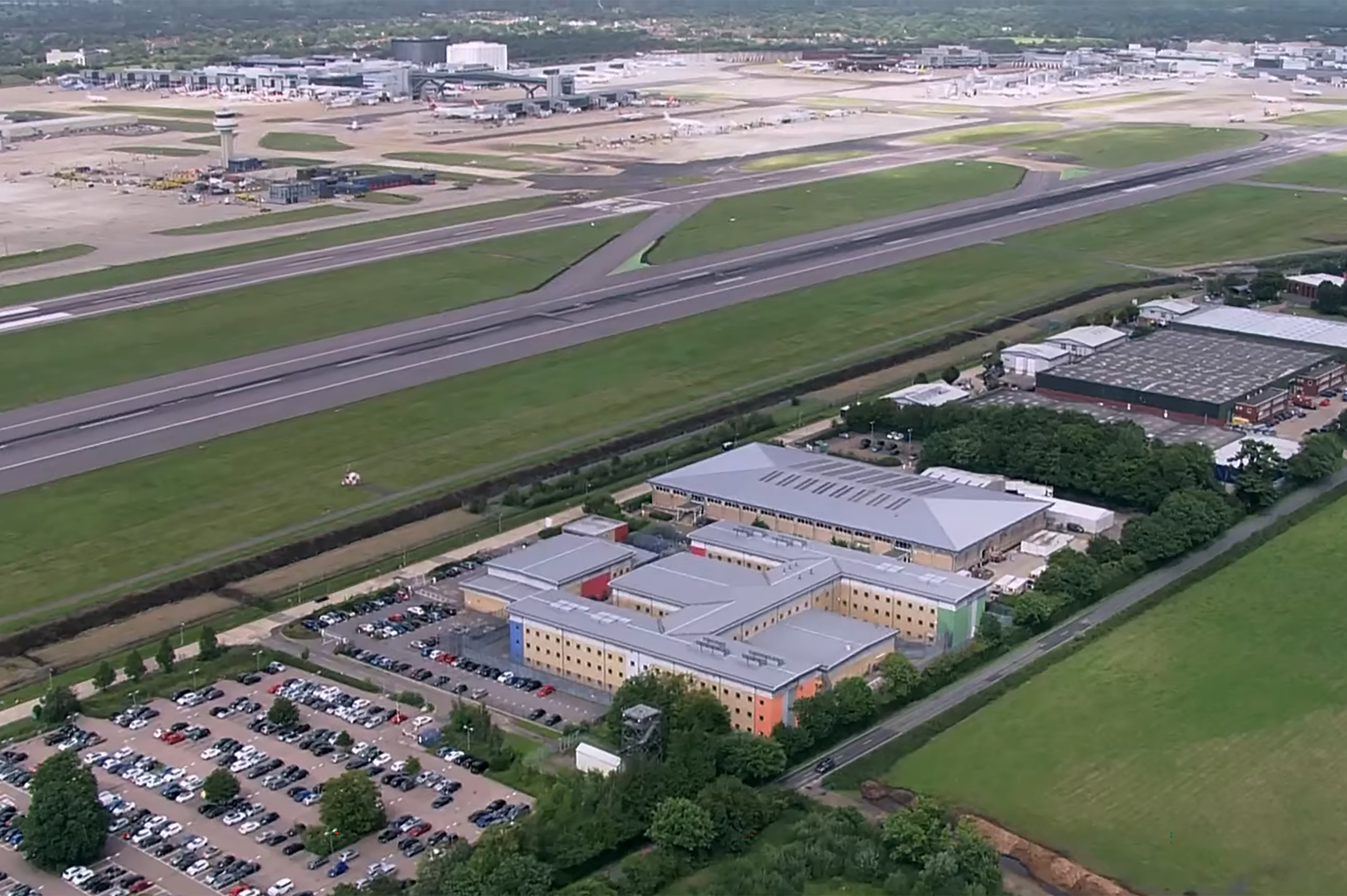‘Systemic issues’ likely to be behind Brook House scandal, says inquiry chair
Exclusive: Causes behind shocking abuse at removal centre in 2017 still of ‘huge relevance’, says Kate Eves

Your support helps us to tell the story
From reproductive rights to climate change to Big Tech, The Independent is on the ground when the story is developing. Whether it's investigating the financials of Elon Musk's pro-Trump PAC or producing our latest documentary, 'The A Word', which shines a light on the American women fighting for reproductive rights, we know how important it is to parse out the facts from the messaging.
At such a critical moment in US history, we need reporters on the ground. Your donation allows us to keep sending journalists to speak to both sides of the story.
The Independent is trusted by Americans across the entire political spectrum. And unlike many other quality news outlets, we choose not to lock Americans out of our reporting and analysis with paywalls. We believe quality journalism should be available to everyone, paid for by those who can afford it.
Your support makes all the difference.“Systemic issues” in the UK’s immigration detention system are likely to be behind the abuse scandal at Brook House removal centre four years ago, the chair of the inquiry into what happened at the facility has said.
Kate Eves, a prison safety expert who is leading a probe into the mistreatment of Brook House detainees shown in a BBC expose in 2017, said that her investigation still had “huge relevance” to broader Home Office policies today.
Undercover footage aired by Panorama programme in September 2017 showed alleged assaults, humiliation and verbal abuse of detainees by officers at the privately run centre, near Gatwick airport, which houses immigrants facing deportation. A public inquiry was subsequently launched in November 2019 to investigate evidence of the alleged mistreatment.
Ahead of the launch of the inquiry on Monday, Ms Eves told The Independent that while the probe was investigating “what happened in a very specific time and place”, it was focusing on “systemic issues around how people are treated in detention”.
“They still have huge relevance today. The issues that we’re looking at may well be relevant to broader Home Office policies around detention and the monitoring of contractors who may be delivering services in terms of detention and the Home Office themselves,” she said.
“I believe we’re going to have a significant impact with the inquiry, because the issues that flow through it are things that are relevant in different settings now potentially as much as they were in 2017.
"The challenge is to make sure that, not only do we answer the question of what happened to those individuals, but that we look closely at the systemic issues that may have led to that happening, and what to do to prevent that from happening.”
Ms Eves, who previously worked for the Prisons and Probation Ombudsman (PPO), said the inquiry would have three main themes: culture among staff and whether race, nationality and language played a part; clinical provision and the use of tools available to identify detainees with particular vulnerabilities; and the use of force. She said all of these areas would be a “really important” focus of her investigation.
As it is a statutory inquiry, the chair has expansive powers to compel individuals and organisations to hand over evidence, or be witnesses about the incidents under investigation.
The public hearings will take place in two phases between November 2021 and March 2022 and will hear directly from formerly detained individuals about their experience of abuse, including racist, physical and verbal abuse, and degrading and dehumanising treatment that took place at the centre.
The inquiry will also hear from Callum Tulley who secretly filmed the mistreatment shown in the BBC Panorama programme Undercover: Britain’s Immigration Secrets, aired on 4 September 2017.
Ms Eves added: “It’s important that the inquiry looks at what happened and what could be done to prevent that from happening in the future, because there are still immigration centres, people are still in detention, and those people are often extremely vulnerable.
“We can’t just tell a story of what happened, we also need to look at how we make recommendations relevant to now in the future, and to actually make sure they have an impact.”
A Home Office spokesperson said: “Immigration detention is a necessary part of our immigration system to remove foreign national offenders and overstayers from our country in compliance with the law.
"We take the wellbeing of those detained in our care extremely seriously. We have a range of safeguards in place to protect the vulnerable, including round the clock access to healthcare professionals and contractors are also duty bound to maintain our safety standards.”
Join our commenting forum
Join thought-provoking conversations, follow other Independent readers and see their replies
Comments